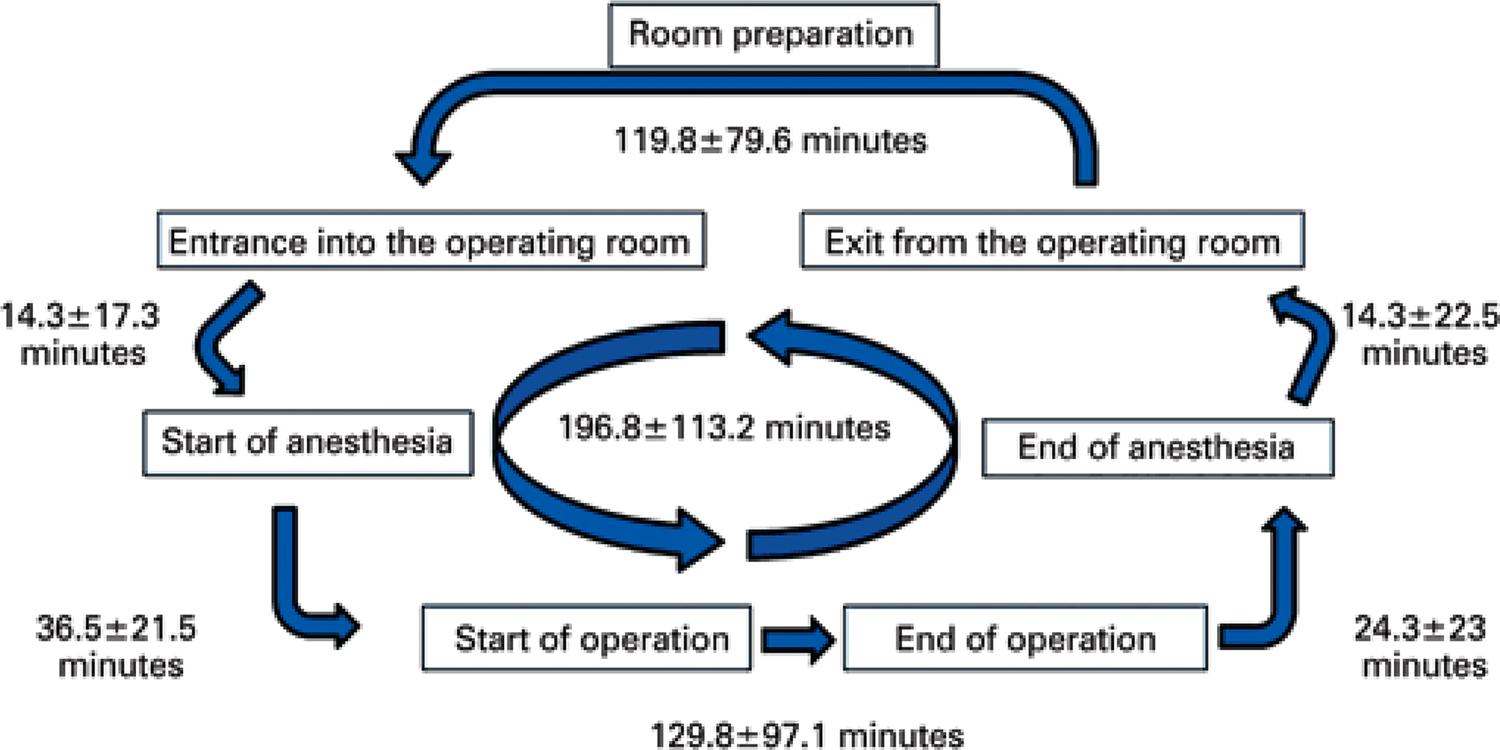Improving Surgeons’ Personal Productivity
By Surgery Management Improvement Group
What do we mean by “Turnaround” Time?
- For Nurses, Turnaround Time usually means from one patient leaving the Operating Room to the next patient entering the OR
- For Anesthesiologists, Turnaround Time usually means from the time a patient is transported to PACU and given report to the next patient’s anesthetic induction
- For Surgeons, Turnaround Time means from the closure of one patient’s surgical wound to the next patient’s incision
- While all these definitions are correct from the perspectives of the different clinicians, the one we will work with in this Module is that of the surgeon
Why such an emphasis on Turnaround (Turnover) Time?
- Turnover Time represents lost revenue-generating opportunity for the Surgeon as well as the Hospital and Anesthesiologist.
- Once in practice, the only thing physicians are really selling is their time…..
– and hospitals can be notorious about wasting physicians’ time! - Improving Turnover Time is a major opportunity to increase the clinicians’ personal productivity and optimize hospitals’ income.
Typical Turnaround Process

- Activities are performed sequentially
– Nursing brings previously completed case instruments to decontamination area, then
– Picks instruments/supplies for next case, then
– Nursing completes room set up, then
– Anesthesia visits patient in Pre-op Holding, then
– Patient is transported into OR, etc., etc. - Rather than in parallel
Improved Turnaround Process

Improved Turnaround Time – Impact

Between current time and benchmark potential can yield significant opportunities for increased business as well as physician satisfaction.Inpatient Case Time Analysis (Minutes)  |
Potential Impact on Increased Business
- Potential Savings: 1,581 hours/year
- Potential Added Cases/Year: 543 cases
Potential Impact on OR Availability
- Equivalent Rooms: 1.10
- Rooms that could accommodate additional volume
How Can We Improve Our Turnover Time?
- The “secret” to improving turnover time is to create a Case Process Map – a definition for all the “actors” on the Operating Room stage of who should be doing what, and when.
- Creating a multidisciplinary team (OR staff, Surgeons, Anesthesia Providers) to clearly identify roles during case set-up and break-down and to determine which activities may safely be conducted simultaneously.
- Adherence to that Case Process Map by all clinicians on all cases.
Shared Definition of “Start” Time

Example Case Process Map

Efficiencies to Consider Incorporating into Case Process Map
-
- Discontinue full body draping for minor procedures performed on head/neck and/or limb
- Create smaller instrument sets for minor procedures
- Discontinue between-case mopping on “bloodless” cases
- Standardize instrument sets (e.g., limited “doctor-specific” trays)
- Regularly review instrument trays’ contents to eliminate seldom/never used items
- Leave instruments in their trays on the back table (Instrumentation requires a significant labor time when laid out individually)
- Regularly review pack contents and preference cards eliminating never used items to facilitate back table management, decrease set up and tear down times and promote cost containment.
- Assign ancillary personnel to assist with:
– room cleaning
– patient positioning, catheterization, tourniquet placement, skin prep, limb holding, etc.
– specialized equipment hook ups and disconnects
– picking supplies/instruments for following cases while current case underway
– anesthesia equipment set up - Minimize documentation time. Collapse and combine as many chart documents as possible. Create an integrated perioperative record for pre-, intra-, and postoperative documentation.
Decreasing TOTAL Turnaround Time


